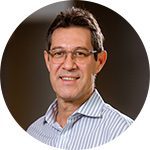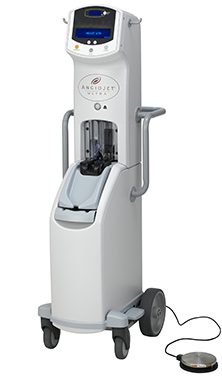The Pandemic Has Left Us More Empowered Patients

Agustín Zabulanes
Country Manager
Boston Scientific Mexico
By Guillaume Corpart
We recently spoke with Agustín about opportunities the industry has identified because of the pandemic, and the way patients have taken a leading role in decision-making related to their health.
Q: The pandemic and the information overload we have experienced in recent years has altered the role of the patient. How have you managed to adapt to the changes, and what kinds of strategies did you adopt?
A: We have seen a lot of changes since the onset of the pandemic, such as the level of collaboration between doctors, patients, and insurers; the use of data and the search for personalized treatments to give us improved results. Medical technology today is advancing toward the personalization of patient care, looking not only to make the patient feel better, but also for them to be part of the experience related to their health.
People are now constantly looking for alternatives with regard to the diseases or illnesses they have, and the various ways of approaching a treatment. Today, patients are more informed and connected. It makes them more involved in their health and want to be part of, or at least influence, the decisions made about their treatment.
In this context, the health sector as a whole, and the medical-device sector in particular, are undergoing a large-scale transformation, which is why we have to evolve with effective strategies that go hand in hand with patient’s needs and expectations.
At Boston Scientific, we have been working for several years on digital initiatives to educate patients in different areas through the site www.pacientescomoyo.com and on the Facebook page, where we have created awareness events together with health professionals. In April last year, we also started an Instagram community, @mujerescomoyo, where we are seeking to provide ongoing education about the various illnesses affecting women. Right now, we have more than 4,100 followers requesting daily information or looking for content about different treatment alternatives for their ailments. We have had an enormous amount of activity, using an approach that allows us to gain a better understanding of the needs and thereby generate higher-value solutions to meet those needs through health professionals.
Q: We are at a new stage where people talk about patients as having the lead role, being empowered, with access to first-hand information, and right now they are the ones pushing doctors to look for different alternatives. This is the main reason why they have become the target audience for companies selling medical devices.
How is this situation affecting the sector?
A: The unlimited access to information today has revolutionized our lives, and this of course has impacted our sector too.
Traditionally, a patient who visited their doctor and was unconvinced of the diagnosis could look for a another professional to get a second opinion, although, depending on the system, this was subject to varying degrees of difficulties and the costs associated with it.
Now patients have multiple options to be informed without having to leave their home or “expose themselves,” whether this means looking for information online, on social networks, or even through the use of teleconsultations. This change puts the patient center stage. They are the ones deciding which channels or sources to listen to in order to make decisions. Having understood this, we see a need and feel a responsibility to direct our efforts at educating the population properly about health issues, sensitizing them to the importance of seeking out medical professionals, and empowering them to look for a more accurate diagnosis and a more effective treatment for their health problem.

Courtesy of Boston Scientific
Q: The pandemic changed the way we see things, and it forced us to change our lives completely. What business decisions did Boston Scientific make vis-à-vis these changes?
A: The pandemic brought with it the obligation to develop alternative systems of patient care and follow-up, to reduce their physical presence at health centers, thereby lowering unnecessary exposure to infections, and optimizing the system’s resources. At Boston Scientific, we have approached the issue on several fronts. On the one hand, we have fast-tracked various remote assistance projects that we had been piloting. The first technology we added was Clinical Eye—glasses that incorporate an audio/video system and allow us to provide remote assistance during complex procedures where proctors (certified specialist physicians) act as guides during surgery. Given the restrictions on flights and being physically present during the pandemic, this was a highly valued solution for not delaying surgery. Today, we have a structure dedicated to remote solutions that includes various technologies with different applications to provide clinical, technical, or educational support. Another interesting aspect is homecare for patients that require close follow-up. Through a strategic alliance with Previta, a leading Mexican company in the telehealth sector, we are giving patients constant follow-up in their homes, and providing valuable information to the treating physician for timely decision-making. Our aim is to facilitate patient recovery and reduce the risk of complications, as well as the associated costs. Our educational capabilities for healthcare professionals have also evolved into a digital educational platform known as Eduacare, where health professionals can find a record of what they have learned, and a wide range of training programs. This platform allows us to customize content and create a better learning experience.
Note about the company: Boston Scientific transforms lives through innovative medical solutions that improve the health of patients around the world. It is a global leader in medical technology, with more than 40 years of experience, innovating in the fields of the cardiovascular system, heart rhythm, interventional radiology, endoscopy, urology, and neuro modulation.





